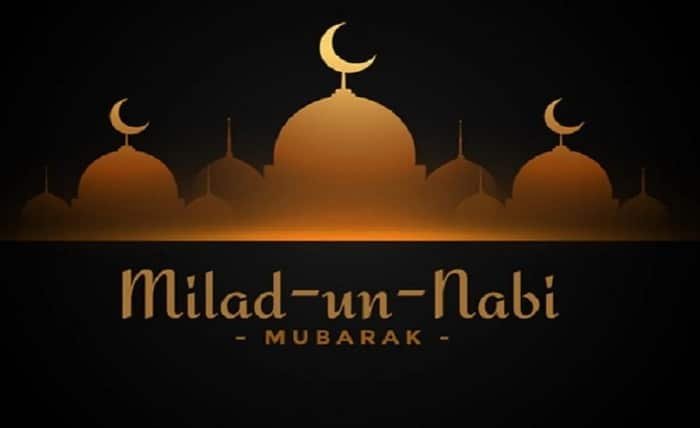Milad un Nabi: Celebrating the Birth of Prophet Muhammad

Milad un Nabi, also known as Mawlid al-Nabi, is a significant celebration in the Islamic calendar that commemorates the birth of the Prophet Muhammad. This event, observed on the 12th day of Rabi’ al-awwal, the third month in the Islamic lunar calendar, is marked with deep reverence and joy by millions of Muslims worldwide. The observance of Milad un Nabi is not only a celebration of the Prophet’s birth but also a time for reflection on his life, teachings, and the impact he has had on the world. In this blog post, we will explore the history, significance, and various ways in which Milad un Nabi is celebrated globally.
Historical Background of Milad un Nabi
The origins of Milad un Nabi can be traced back to the early centuries of Islam. The celebration is believed to have been introduced in the 13th century by the Fatimid Caliph al-Mu’izz. The purpose was to honor the Prophet Muhammad and his profound influence on the Islamic faith. Although different Islamic traditions have varying views on the celebration, it has evolved over the centuries into a widespread and cherished observance among Muslims.
The Significance of Milad un Nabi
Milad un Nabi holds deep spiritual and historical significance for Muslims. It is a time to remember the Prophet Muhammad’s life and his teachings, which emphasize peace, compassion, and justice. The occasion provides an opportunity for Muslims to renew their commitment to living according to the Prophet’s example. Additionally, it is a time for community gatherings, prayers, and sharing knowledge about the Prophet’s life.
Traditions and Rituals
The traditions and rituals associated with Milad un Nabi vary across different cultures and regions. However, some common practices include:
- Special Prayers and Sermons: Many Muslims attend special prayers and sermons at mosques where the life and teachings of the Prophet Muhammad are discussed.
- Public Processions: In some countries, processions are held where people gather to recite hymns and chant praises of the Prophet.
- Charitable Acts: Giving to charity and helping those in need is a common way to honor the Prophet’s teachings of compassion and generosity.
- Feasting and Sharing: Families and communities come together to share meals and celebrate the occasion with traditional foods and sweets.
Milad un Nabi Around the World
Milad un Nabi is celebrated in various ways around the world, reflecting the diverse cultures within the Muslim community:
- In the Middle East: Countries like Saudi Arabia and Egypt observe Milad un Nabi with large public gatherings, elaborate decorations, and religious recitations.
- In South Asia: In countries such as Pakistan, India, and Bangladesh, the day is marked by colorful processions, special prayers, and recitations of the Prophet’s life stories.
- In Southeast Asia: In Indonesia and Malaysia, Muslims celebrate Milad un Nabi with public events, recitations, and community feasts.
- In Western Countries: In places like the United Kingdom and the United States, where Muslim communities are more diverse, celebrations may include educational events, interfaith dialogues, and communal gatherings.
Controversies and Debates
The celebration of Milad un Nabi is not without its controversies. Some Islamic scholars and communities oppose the observance, arguing that it is not in line with the practices of the early Muslim community. They believe that celebrating the Prophet’s birth as a formal event can lead to innovations in religious practices that are not supported by Islamic teachings. On the other hand, many Muslims view the celebration as an expression of love and respect for the Prophet Muhammad and a way to strengthen their faith.
Modern Adaptations
In the modern era, the way Milad un Nabi is celebrated has evolved with technology and globalization. Social media platforms and digital tools have become important in spreading the message of the Prophet Muhammad. Online events, virtual lectures, and digital greetings have become common, allowing Muslims to connect and celebrate even if they are geographically distant.
The Impact of Milad un Nabi on Community Building
Milad un Nabi serves as an important occasion for community building. It brings Muslims together to celebrate their shared faith and values. The event fosters a sense of unity and strengthens bonds within the community. It also provides an opportunity for Muslims to educate others about the teachings of the Prophet Muhammad and to engage in interfaith dialogue.
Conclusion
Milad un Nabi is a deeply meaningful celebration for Muslims around the world. It is a time to honor the birth of the Prophet Muhammad and to reflect on his teachings and their relevance in today’s world. Despite the controversies surrounding its observance, the celebration remains a significant part of Islamic culture and a testament to the enduring legacy of the Prophet Muhammad. As communities continue to adapt and celebrate this occasion, it serves as a reminder of the values of compassion, justice, and unity that the Prophet embodied.
FAQs
- What is the significance of Milad un Nabi? Milad un Nabi commemorates the birth of Prophet Muhammad and provides an opportunity to reflect on his teachings and life.
- When is Milad un Nabi celebrated? Milad un Nabi is celebrated on the 12th day of Rabi’ al-awwal, the third month in the Islamic lunar calendar.
- How do people celebrate Milad un Nabi? Celebrations vary but commonly include special prayers, sermons, public processions, charitable acts, and community feasts.
- Are there any controversies associated with Milad un Nabi? Yes, some Islamic scholars and communities oppose the celebration, arguing that it is not in line with early Islamic practices.
- How has Milad un Nabi been adapted in the modern era? Modern adaptations include the use of social media for spreading messages and hosting virtual events, allowing global participation in the celebration.




